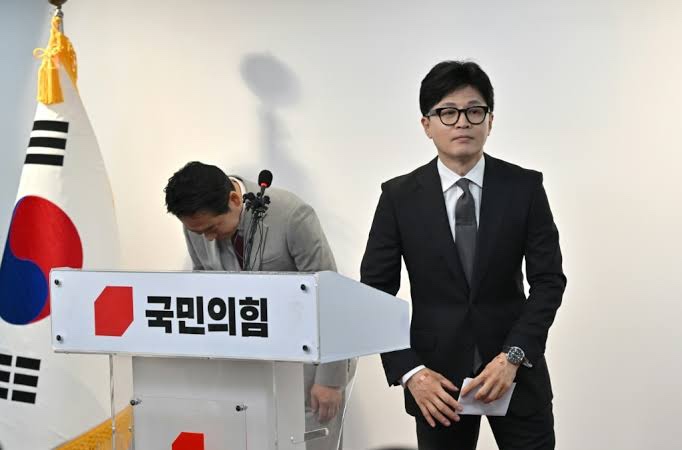‘Lame duck’ S. Korean president reels from election debacle

South Korean President Yoon Suk Yeol vowed “reform” as his ruling party leader resigned in the aftermath of a devastating electoral setback that bolstered the opposition’s grip on parliament.
Alongside People Power Party (PPP) chief Han Dong-hoon’s resignation, Prime Minister Han Duck-soo and several senior aides also offered to step down, according to local media reports.
The election outcome effectively renders Yoon a lame duck president for the remainder of his term, marking him as the first South Korean leader whose party failed to command the legislature during their tenure. Political analysts anticipate heightened confrontation and legislative gridlock in the coming years, with bipartisan cooperation expected to be challenging, as noted by Shin Yul, a professor of political science at Myongji University.
Despite Yoon’s firm stance on North Korea and efforts to improve relations with the United States and Japan, his leadership has faced public discontent over issues such as inequality, soaring housing costs, and youth unemployment in the nation of 51 million. Criticism intensified following Yoon’s remarks on the affordability of green onions and the circulation of a video showing his wife receiving an expensive designer handbag.
Acknowledging the election results, Yoon pledged to respect the people’s will, undertake state affairs reform, and prioritize stabilizing the economy and livelihoods, according to his chief of staff Lee Kwan-sup. However, with the PPP and its allies losing ground in parliament, Yoon’s ability to advance his legislative agenda appears significantly constrained.
The Democratic Party (DP) and its allies, led by Lee Jae-myung, emerged as the major beneficiaries, securing a larger seat count in the National Assembly. The Rebuilding Korea party, led by former justice minister Cho Kuk, capitalized on public dissatisfaction with the mainstream parties, gaining traction with voters and securing several seats.
For Yoon, who had hoped for a parliamentary majority to advance his policy objectives, the election outcome represents a significant political setback. The president’s proposed healthcare reforms and plans to abolish the ministry of gender equality face challenges amid a fractured political landscape and mounting opposition.
While the opposition fell short of a supermajority necessary for impeachment, Yoon’s presidency remains precarious. Analysts warn of the potential for impeachment proceedings if Yoon fails to navigate collaboration with the opposition effectively. The outcome underscores a turbulent period ahead for South Korean politics, with implications for the nation’s governance and stability.












